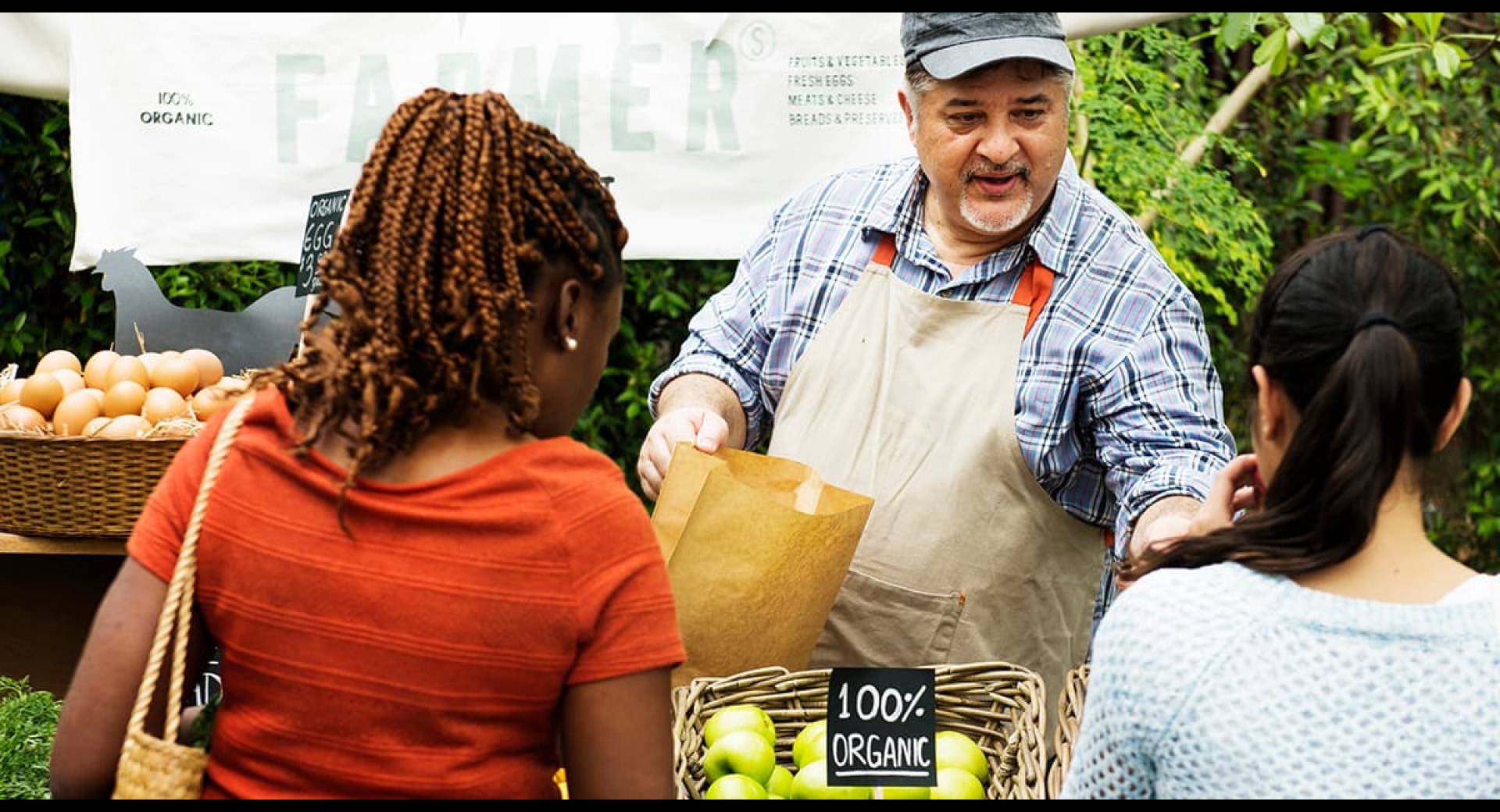
What is Vendor's Insurance?
If you sell food or products at farmers’ markets, craft fairs or other events, you need vendor insurance.
Vendor insurance protects you and what you sell.
If you’re in Calgary or the surrounding area, your Western business insurance expert will give you top-notch advice and ways to save on your vendor insurance package. We’ll help you get customized vendor insurance to protect you and what you sell.
What is vendor insurance?
Vendor insurance protects you against risks that can come with selling products, produce, handcrafted items, and food at events such as farmers’ markets, craft and food fairs, and trade shows. It allows you to focus on your customers knowing that you are protected.
What types of sellers need vendor insurance?
- Farmers’ market vendors
- Artisans
- Food vendors
- Produce sellers
- Flea markets vendors
- Trade show vendors
A vendor insurance package helps protect you from these 3 common claims:
1. A customer says the salad they bought from your food stand had traces of peanuts, a serious allergen for them that made them sick and required medical treatment. The customer says there was no warning label about traces of nuts. The customer sues you for bodily harm. Your product liability insurance may help cover the costs of legal and medical fees.
2. You make high-end jewelry and some of it is stolen while you are serving a customer. Your commercial property insurance may cover the cost of the stolen jewelry.
3. A customer says you spattered sauce on their expensive designer handbag, ruining it with stains when they were at your stall at a food fair. You are sued for damages. Your commercial general liability insurance would help cover legal fees and damages.
How much will my vendor insurance cost?
Here are factors that will influence the cost of your vendor insurance:
- Type of products sold
- Years of experience
- Annual revenue
- Number of employees
- Past claims
At Western, we will save you time and money by doing the insurance shopping for you to find a vendor insurance policy that suits you at the right value.
Here’s an insurance check list for vendors:
- Do you have the best business insurance rate for your business?
- Do you have the right amount for your deductible and regularly review to make sure it’s the right amount for your business?
- Is your number of employees up to date?
- Are you using your car to transport your products to a farmer’s market, craft show or trade exhibition?
Get a Certificate of Insurance: You can ask your insurer for a certificate of insurance. It provides proof of active insurance coverages and the limits. These certificates help event organizers confirm that you are compliant with their insurance requirements.
What is covered with vendor insurance?
Commercial General Liability (CGL) Insurance: Typically, the organizers of the event at which you’re selling your products will have liability insurance, but it may be mandatory to have your own CGL insurance policy.
This type of insurance protects you if someone alleges your business is responsible for bodily injury or property damage. It includes coverage for your legal expenses if you’re sued after an accident. Without CGL insurance, you would be paying out of your own pocket for these expenses.
You should have $1 million to $2 million in CGL insurance, depending on what you sell.
Commercial Property Insurance: It gives you financial protection for your products and any business-related equipment from insured risks such as a fire, theft, or flood. If your products and equipment were damaged after a windstorm, this type of coverage may provide financial coverage to repair or replace those damaged items.
Product Liability Insurance: This type of coverage is essential for vendors who make or sell any products, including food. It provides financial protection against claims of alleged property damage or bodily injury that was directly caused by your product.
For example, you’ve created a bracelet and it has caused a skin reaction on a client. Product liability insurance could cover a lawsuit and the related fees.
Commercial auto: Your car should be covered by commercial auto insurance if you are using it to transport and travel to markets and trade shows. Your personal car insurance policy won’t cover you for this.
Do I have to get vendor insurance for every market or tradeshow that I attend?
This depends on the type of vendor insurance you get. It can cover one day market at a specifically listed market, or you can have an annual policy that would cover multiple locations.
What do I do if I have an insurance claim as a vendor?
- Contact your broker immediately after any business-related mishap. Waiting to file a claim can confuse insurers about the severity of the damages to your business.
- Know your policy so that when you contact your broker you are familiar with what will be covered or not.
- Document the damage. Take photos right away and write down what happened.
- Do not throw away damaged goods after taking photos. Keep the physical evidence so that your adjustor can see it.
- Do not invite lawsuits. Don’t say anything that could be used against you, especially if you aren’t sure what happened.
- Be honest about what your damaged property is actually worth. Damaged commercial property is generally valued according to its actual cash value or replacement value.
Western Insurance has licensed BUSINESS INSURANCE EXPERTS to get you the right insurance package if you are selling your products or food at different types of venues. Our experts are available now to help you navigate the business insurance journey to protect you and the products you sell at farmers’ markets, craft shows, trade shows and other events.
Talk to an Insurance Expert
Call Us Now 888-595-3104

